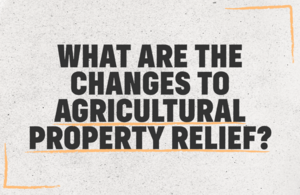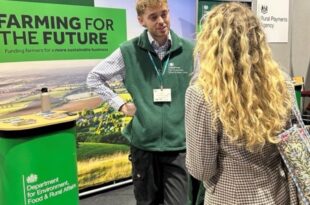
A fortnight ago, we made full guidance for the new Slurry Infrastructure grant available on GOV.UK.
I said I’d blog again when it was time to apply. I’m pleased to say that the first round is now open for applications and it will stay open until 31 January 2023.
Before applying, take a look at the guidance. It sets out who can apply, what the grant can pay for and the information you’ll need to provide when you apply.
A recap of the application process
1. Online checker
The first stage of the applications process is an online checker. You can find it on the Slurry Infrastructure grant page on GOV.UK.
We developed the checker to give you an easy way of checking you’re eligible for a grant and how much funding you could get. The checker also tells Defra how many farmers want a grant and the size of projects across the country.
This helps us control how many people we invite to submit a full application in this round. It also means you won't waste time filling in an application if we can’t prioritise you in this round.
As you use the checker, it's important to be as accurate as you can about your slurry storage needs and project plans.
The Rural Payments Agency (RPA) and the Environment Agency have created guidance to help plan your slurry storage.
Once the online checker closes, the RPA will look at how many projects can be funded. If the scheme is oversubscribed, RPA will identify which applications have a higher environmental benefit based on the priority areas shown in MAGIC.
This will be based on location and proximity to areas where action is most needed to reduce pollution from agriculture.
You can read about how we’ll do this in detail. You can still apply for the scheme even if you are not within these priority areas.
2. Full application
Those invited to make a full application will need to submit details about their project.
It's important that you don’t start your project until you’ve made a grant funding agreement with the Rural Payments Agency.
You can, for example, get quotes and apply for planning permission, but you cannot pay for any eligible items or start construction.
Full details about what you can and can’t do are available on GOV.UK.
If you aren’t ready to apply for a grant this round don’t worry, there will be more opportunities to apply.
Watch the webinar
We held a webinar to discuss the grant on Wednesday 7 December 2022.
I was joined by colleagues from Defra, RPA, Environment Agency and Catchment Sensitive Farming to answer your questions.
You can watch a recording of the webinar.






 The
The 
2 comments
Comment by Paul Henman posted on
I see the 'Slurry Wizard tool' has the some what simplistic calculation for slurry volumes based on slurry volume bands based on the original NVZ figures which probably were out dated when used some 25yrs ago.
Very high yielding herds will be producing significantly more slurry than 64 litres/cow/day.
A cow producing more litres of milk will eat more and therefore produce more slurry.
I tend to use a slurry/ milk yield factor of 0.007 (litres of slurry/litre of milk) thus a 12,500 annual average litres herd is likely to be producing around 88 litres of slurry/cow/day.
I am assuming using such figures (where backed up with verifiable evidence) should be acceptable to arrive at a more acceptable volume of slurry to be stored?
Comment by The Team posted on
Hi Paul,
Farmers are required to use Slurry Wizard to ensure applications are consistent.
If you have specific concerns with how the tool works for your farm, do discuss this with the Rural Payments Agency when you submit your location and design check information at full application.
Best wishes,
The Team